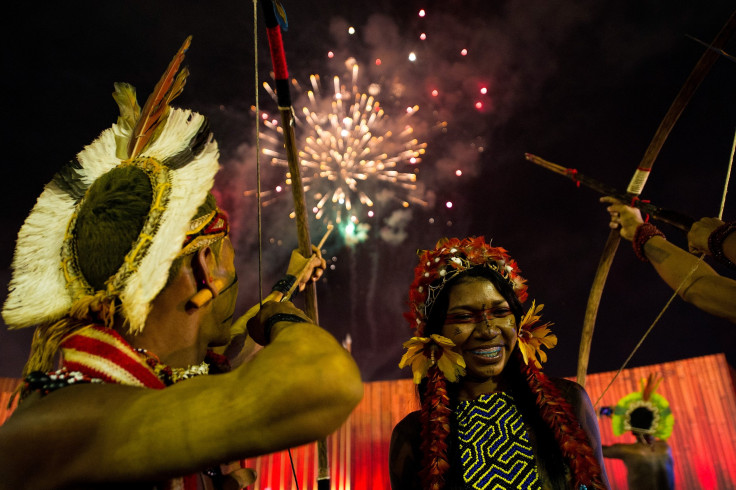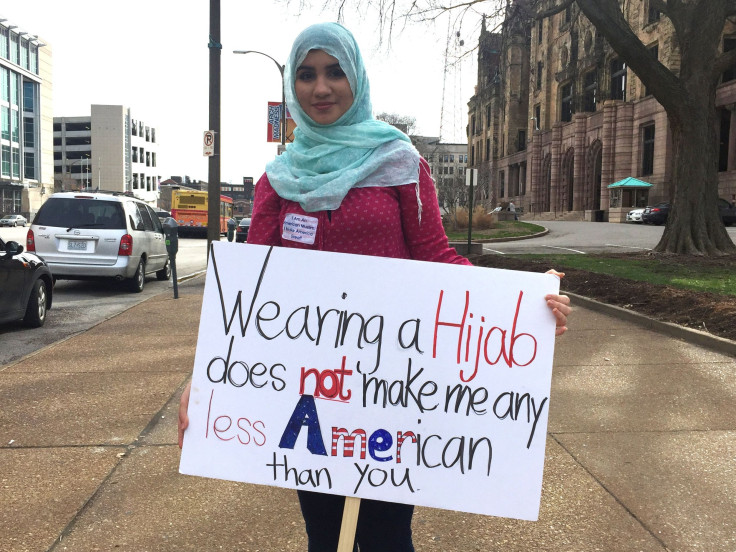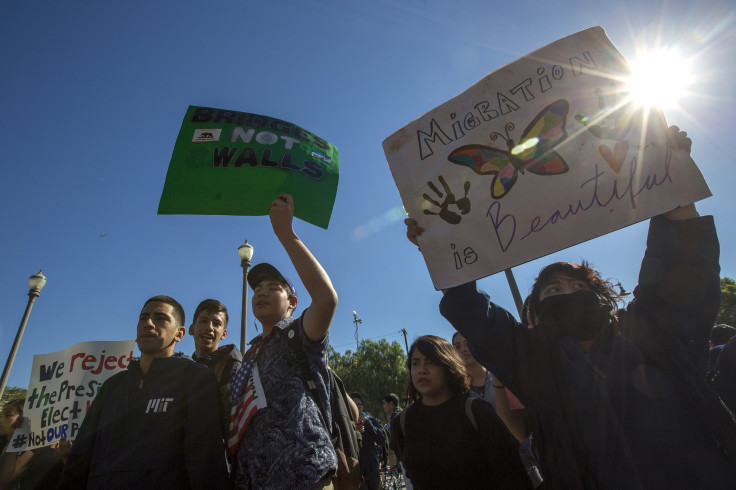Fourth Of July 2017: How Donald Trump Made Independence Day Bittersweet For Minorities

Even though Fourth of July is a day of celebration for the people of the United States, some minority communities in the country feel less jovial about the occasion this year. President Donald Trump may be the reason behind it.
The lack of trust between Trump and the minority communities like African-Americans, Hispanics, Muslims and the LGBT was evident right after Trump started campaigning for presidency and expressed his opinions about thes communities. After the election results were declared in November, Reuters analyzed the polling data and revealed Trump secured the lowest number of minority votes than any other U.S. president in the last 40 years. According to the data collected, he was elected with 8 percent of the black vote, 28 percent of the Hispanic vote and 27 percent of the Asian-American vote.
The racial polarization due to Trump’s discourse during the election campaign led to a surge in hate crimes as soon as he emerged victorious in the presidential race.
Read: Trump Foregoes White House Iftar Dinner, Muslim Leader Says 'We're Not That Important'
Many Muslim women reported supporters of the president pulling off their hijabs. There were also instances of racial abuse by white supremacists that started the #WhiteAmerica trend on Twitter.

An African-American woman in Delaware said she was waiting at a gas station when a white man from a group approached her and said: “How scared are you, you black b----? I should just kill you right now, you’re a waste of air,” the Independent reported in November.
Most people of Hispanic origin were mistaken as Mexicans with Trump allies threatening them with verbal profanities. The LGBT community too faced harsh times. “Can't wait until your 'marriage' is overturned by a real president,” a sign which was left on a car in North Carolina said.
The situation worsened after Trump took office. Most people from the minority communities were of the view Trump did not care about their rights or safety. And the president did little to prove them wrong.
The president has drawn up policies that have been controversial for more than one reason. The watered down version of the immigration ban, which is also called the Muslim ban, went into partial effect June 27, putting certain restrictions for people from six Muslim-majority countries.
Read: Increase In Anti-Muslim, Racial Offences Under Trump Administration
The ban stated only immigrants who have bona fide relationship with a U.S. citizen can enter the nation. Immigration advocates like Patricia Montes from Boston expressed concern over the ban by boycotting Fourth of July celebrations. “I fell very conflicted,” said Montes, NewsOK reported. “I mean, what are we celebrating? Are we celebrating democracy?”

Janelle Astorga Ramos, a University of New Mexico student and daughter of a Mexican immigrant shared a similar sentiment. "There's a lot not to be proud about when celebrating the Fourth of July,” she said. “Even though it's a time to celebrate as a country and (for) our unity, it's definitely going to be on the back of our minds."
“Over-policing” is a term that African-Americans have become well-familiar with, given the rise of police violence against people of color. Even though more than 250 black people were killed in police shootings in 2016, Trump insisted shortly after his inauguration, the law enforcement officers needed to be protected and not the other way round, the Guardian reported.
To this end, the president has signed three executive orders during the Black History Month that gave police officials more power to the police. "I am directing the Department of Justice to reduce crimes and crimes of violence against law enforcement officers,” he said, the Independent reported. “It’s a shame, what has been happening to our great, our truly great, law enforcement officers. That is going to stop today.”
Janette McClelland, 55, a black musician in Albuquerque, New Mexico, said she does not feel like celebrating July 4. "It's a white man's holiday to me. It's just another day," McClelland said. "I'm not going to even watch the fireworks. Not feeling it."
In March, Trump approved the Dakota Access oil pipeline plan that was put under hold by the administration of former President Barack Obama. The move was followed by protests from multiple tribal groups of Standing Rock Sioux, who claimed the pipeline would become a threat to water sources if there was a leak. The $3.8 billion project resumed operating June 1. As water and land rights remain on peoples' mind, Ruth Hopkins, a member of South Dakota's Sisseton Wahpeton Oyate tribe, said that Fourth of July will be celebrated with ambivalence.
© Copyright IBTimes 2024. All rights reserved.






















